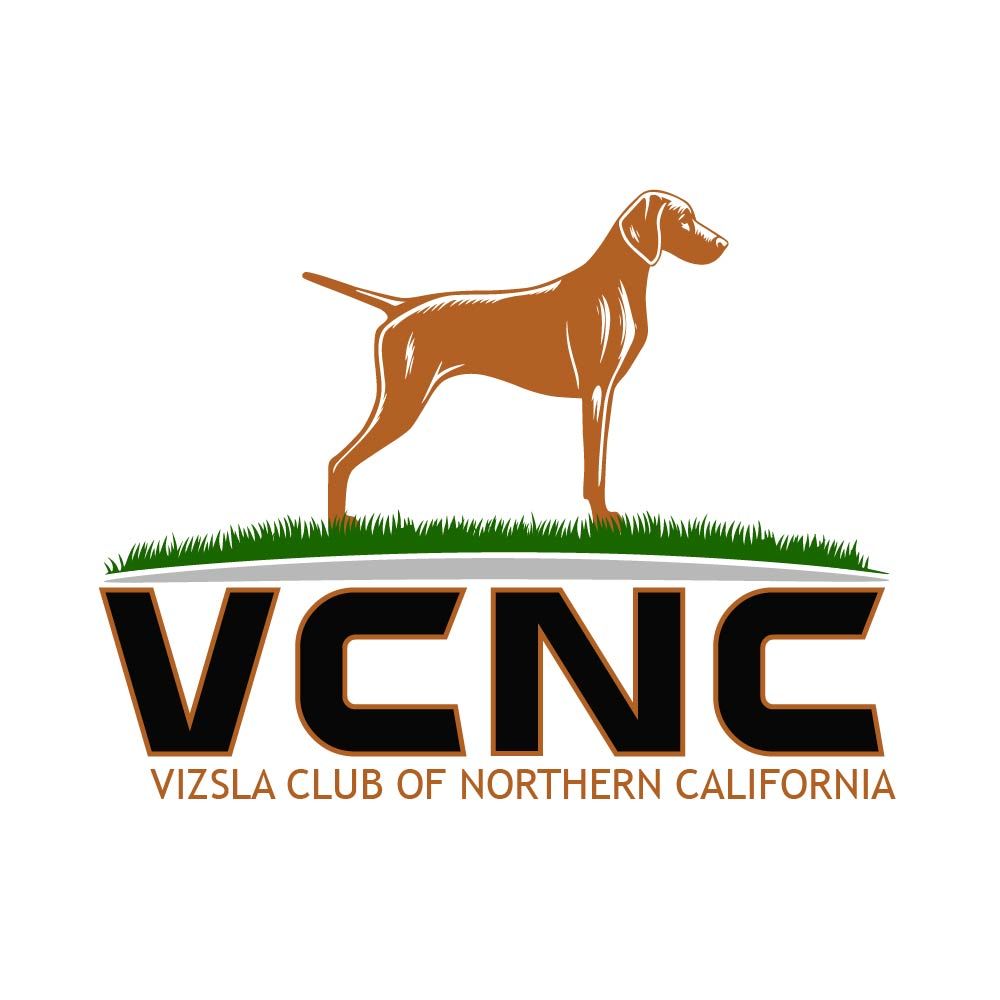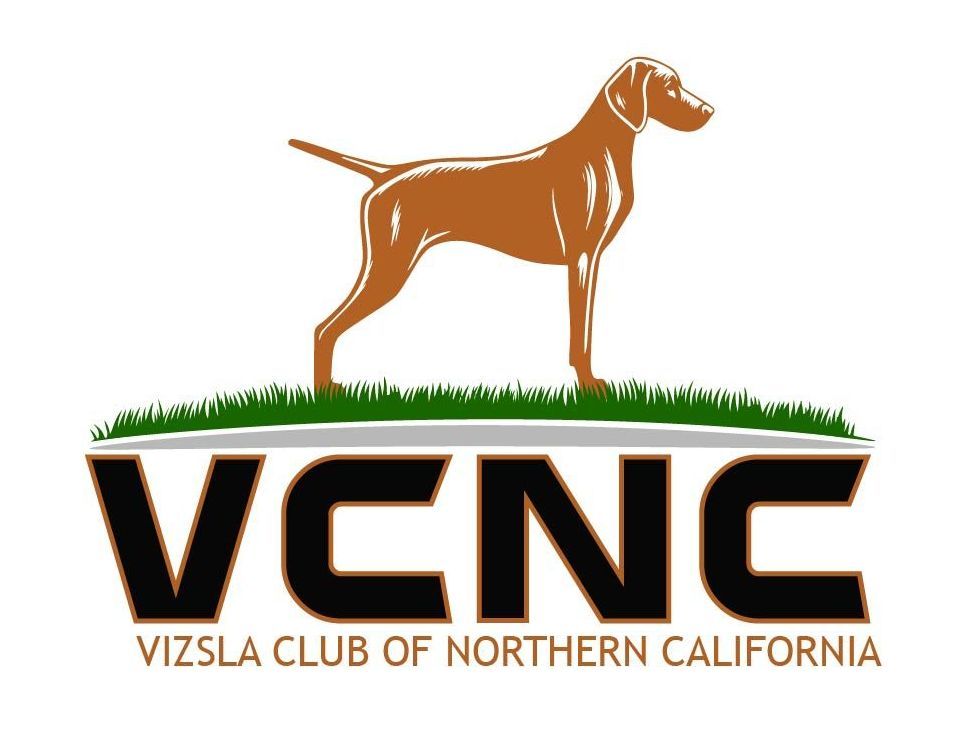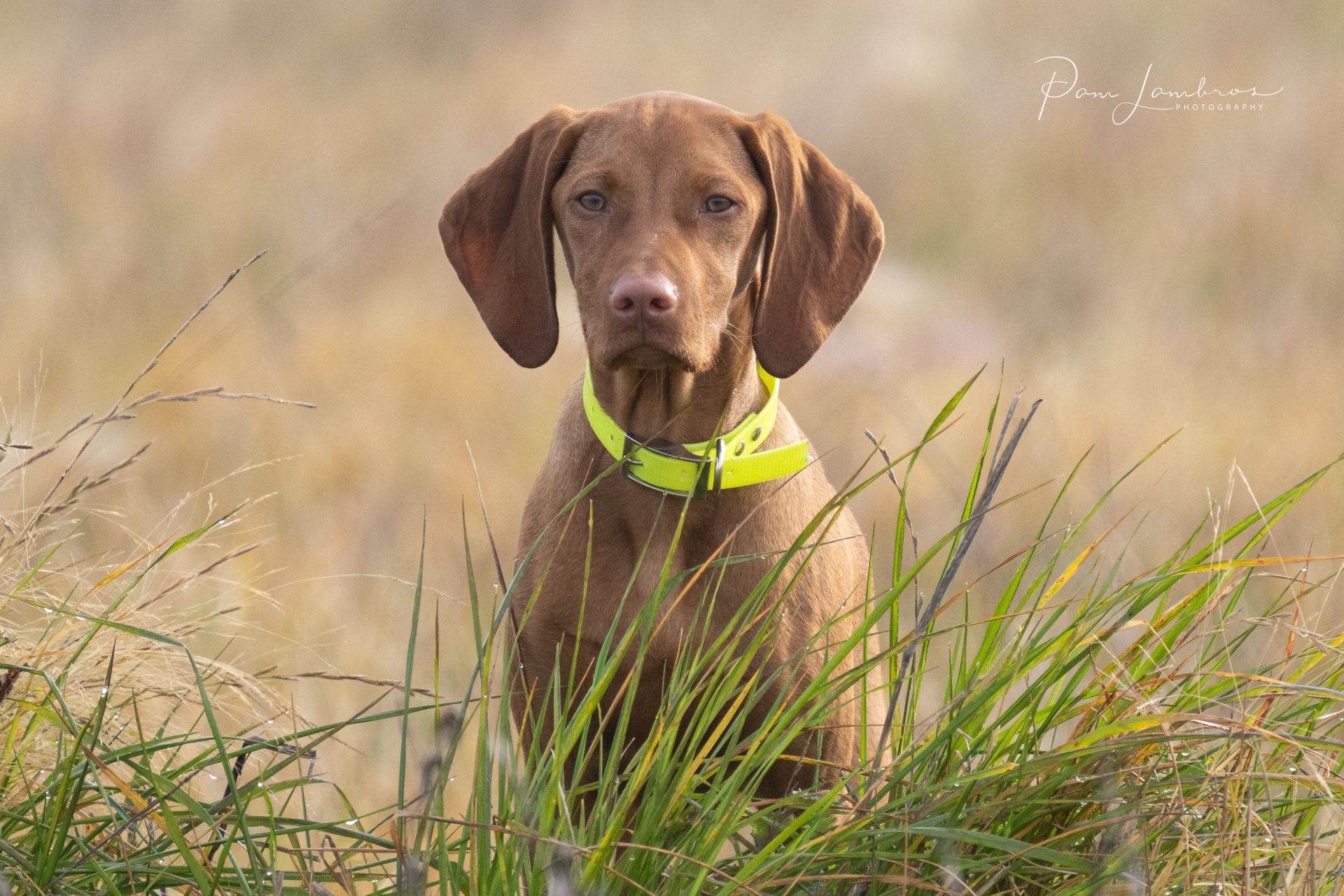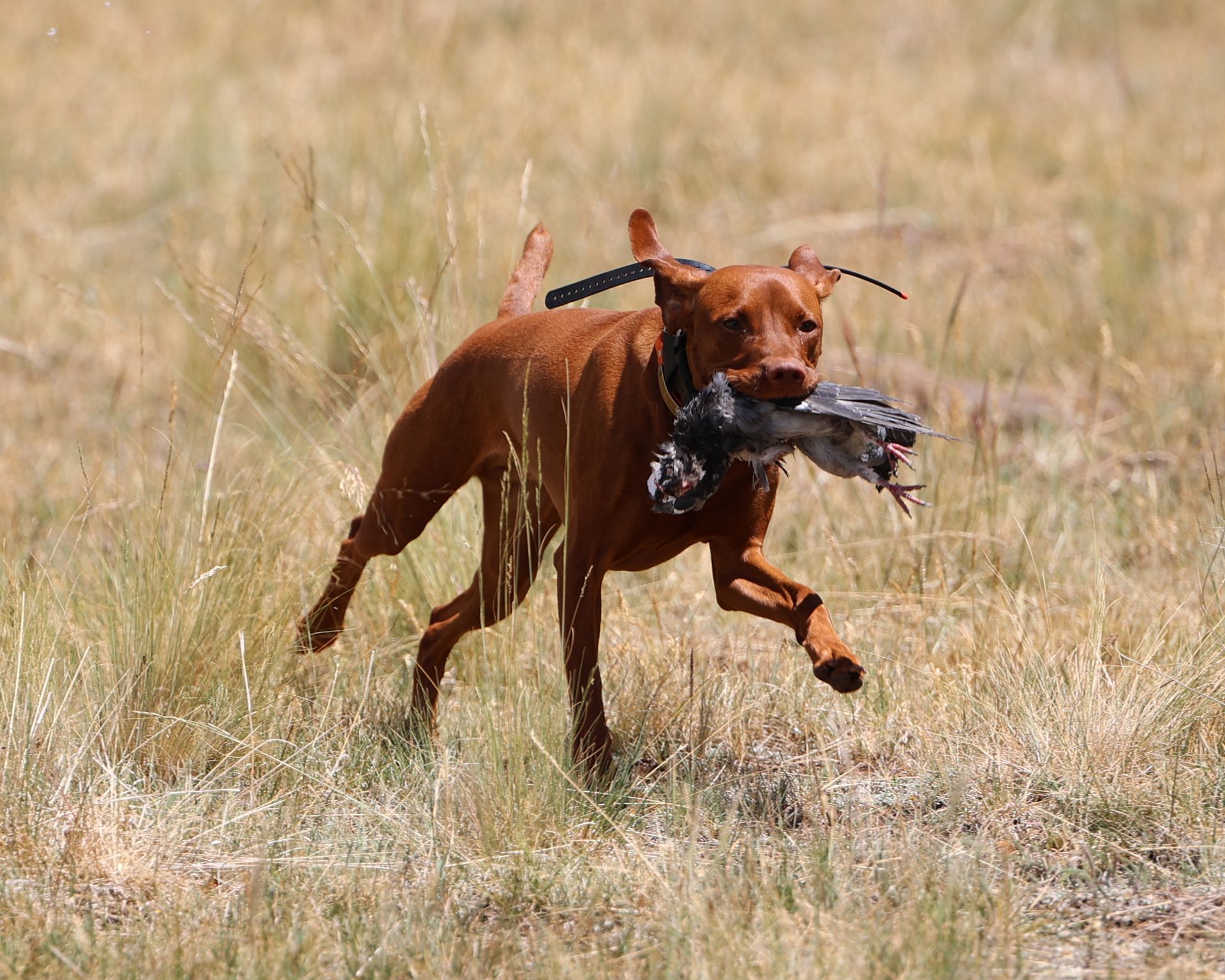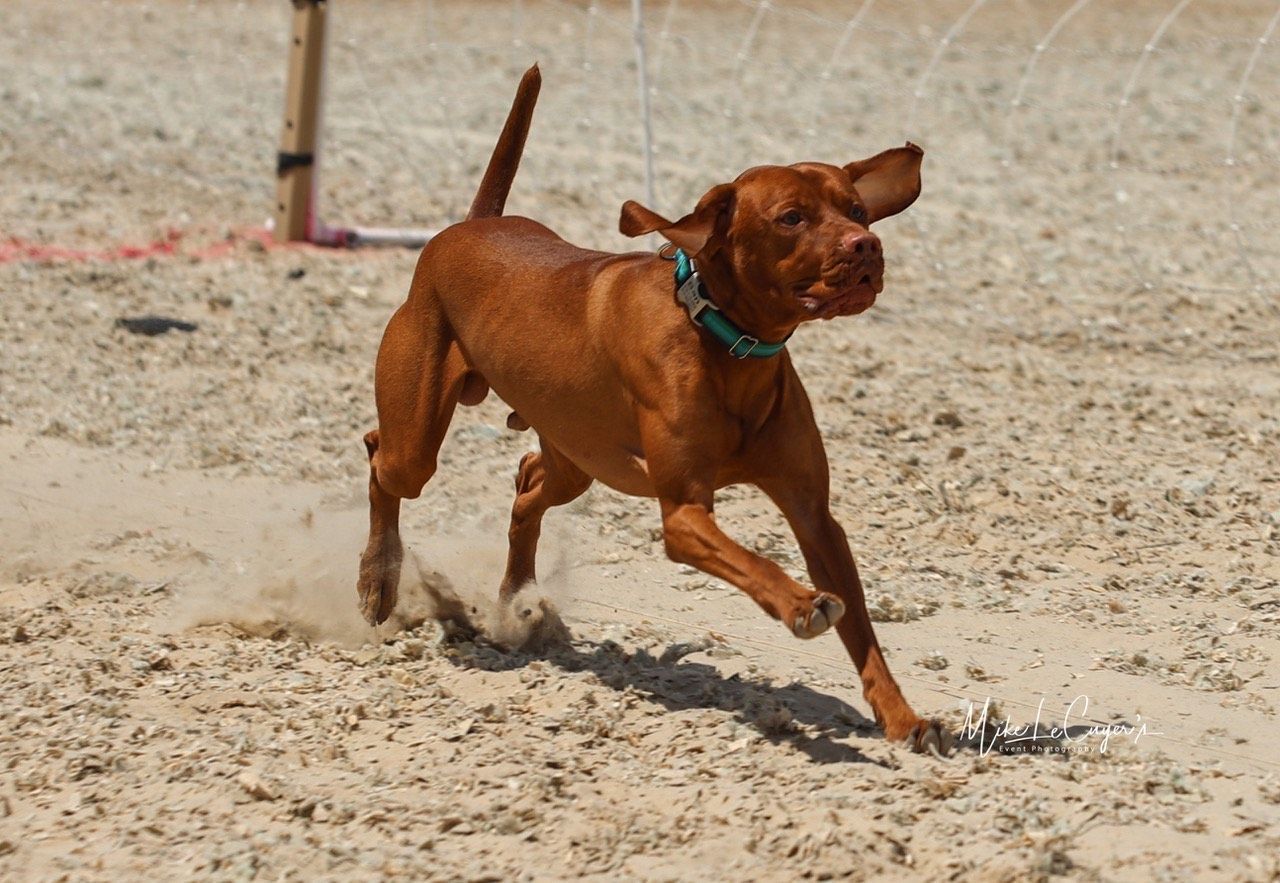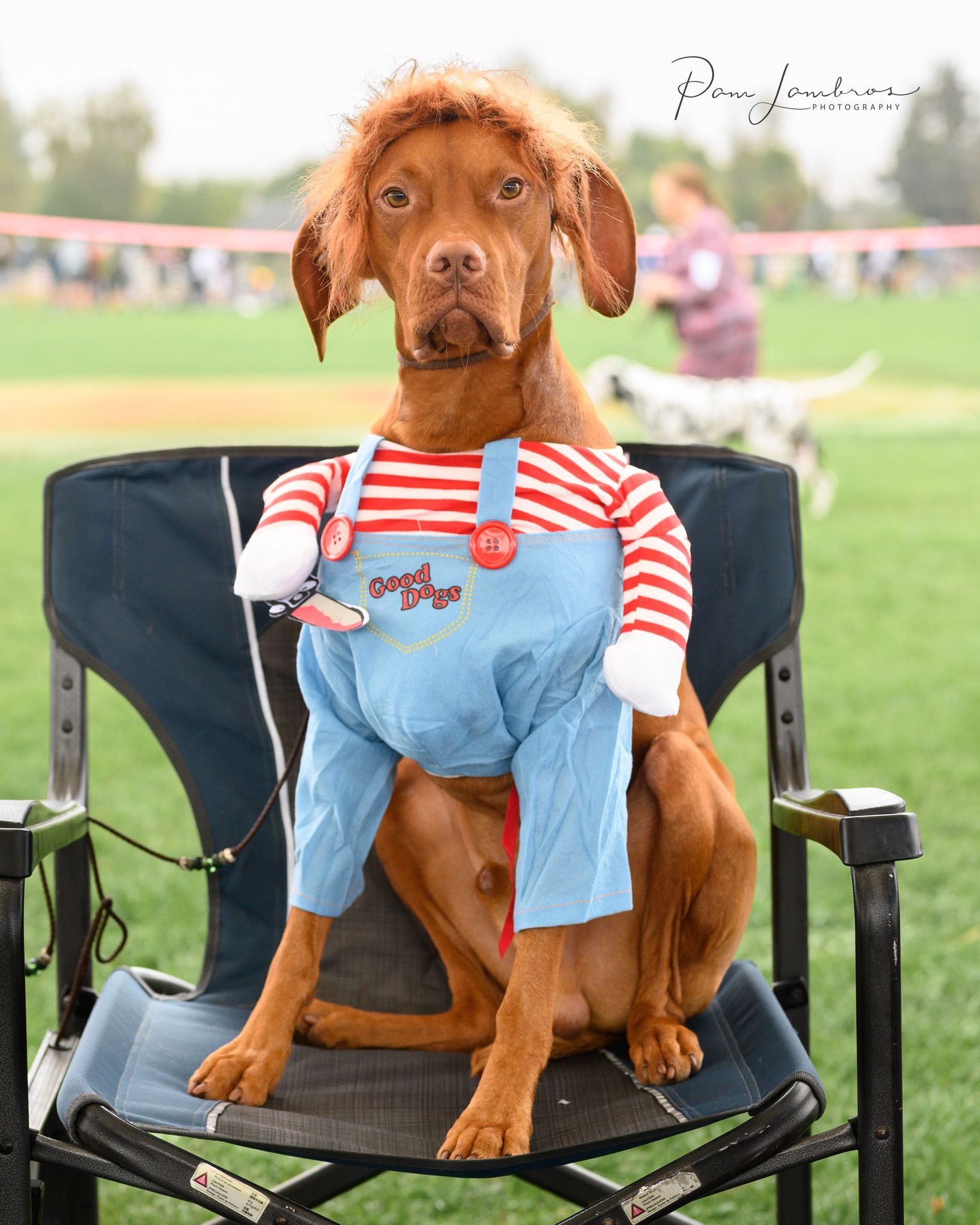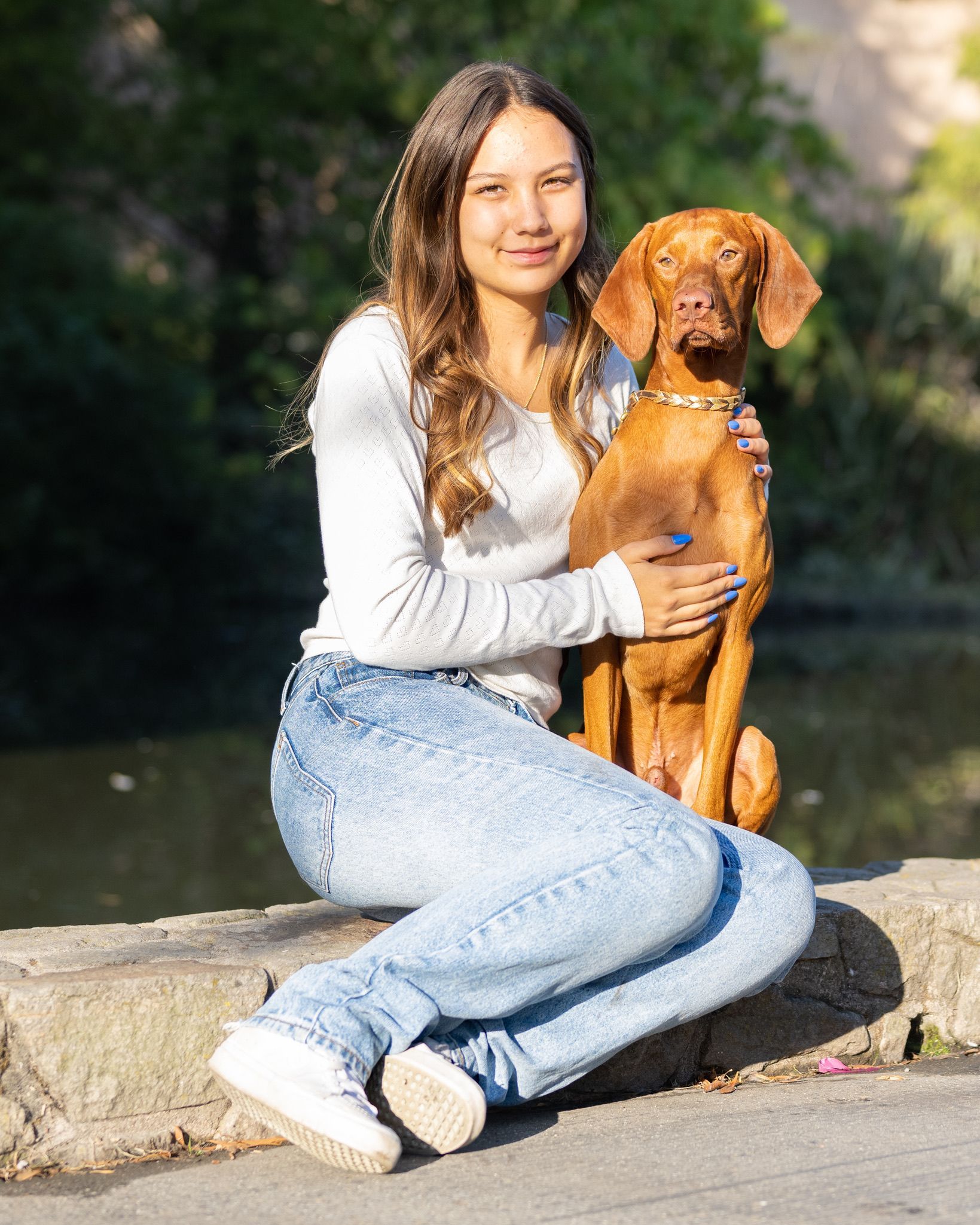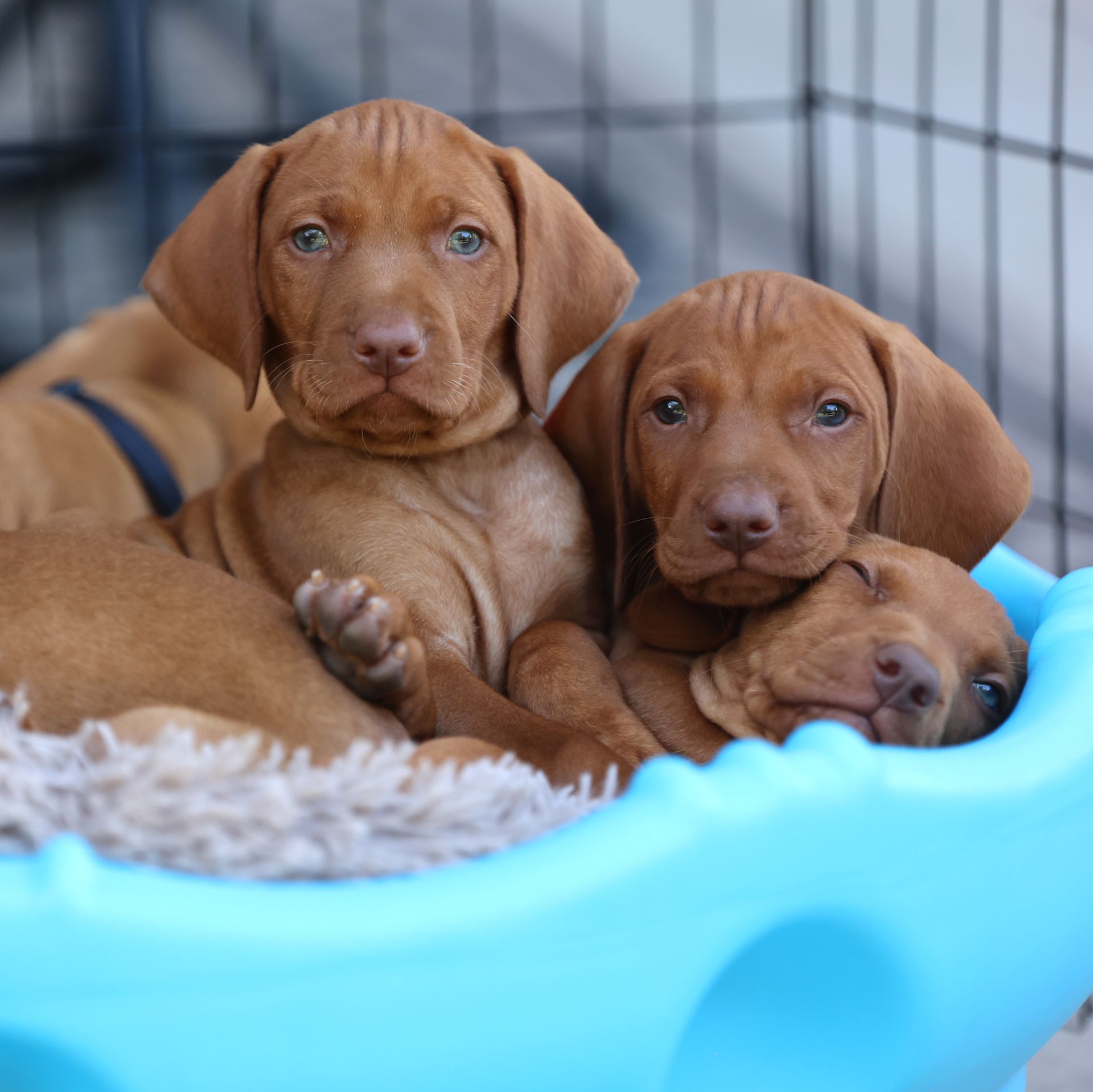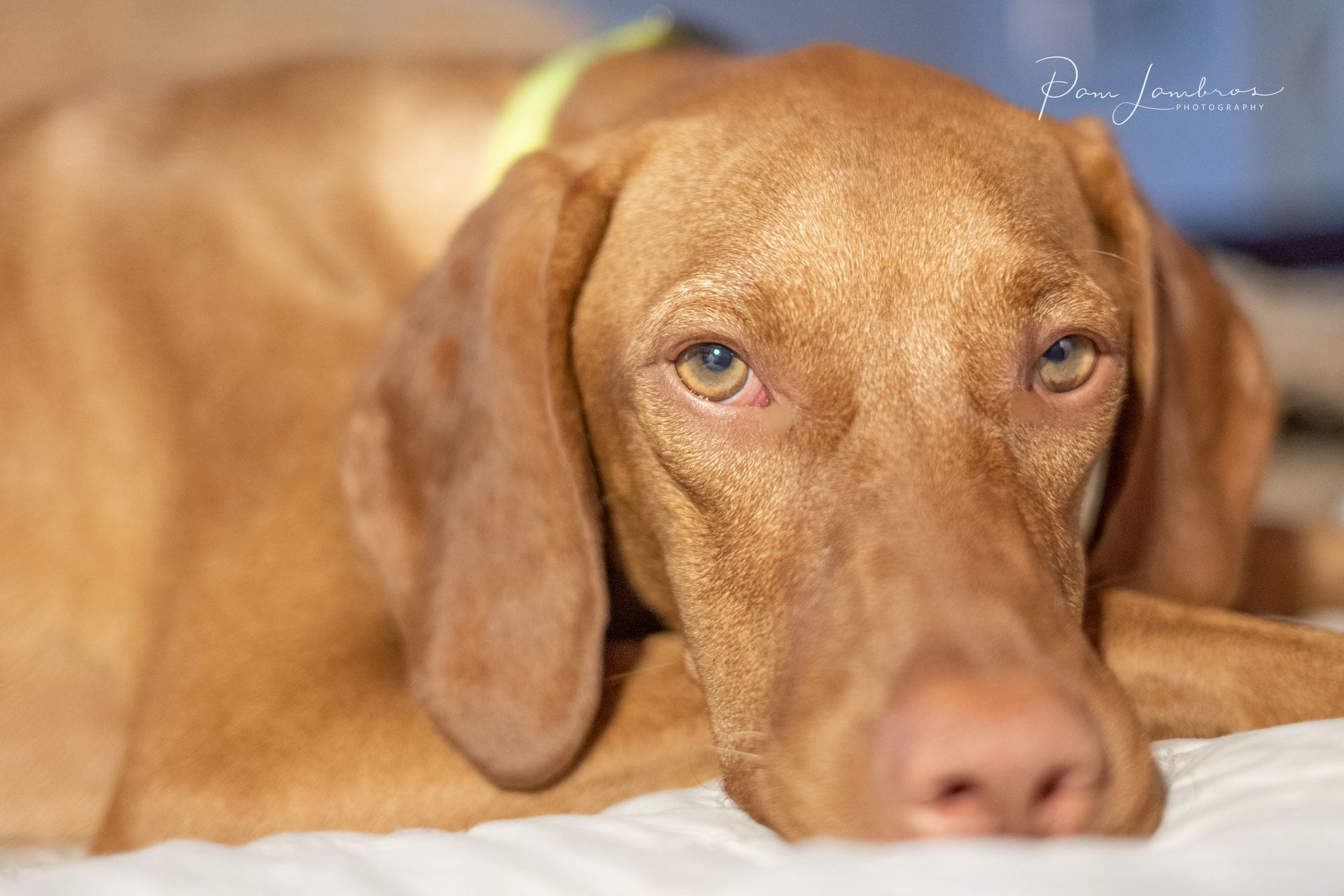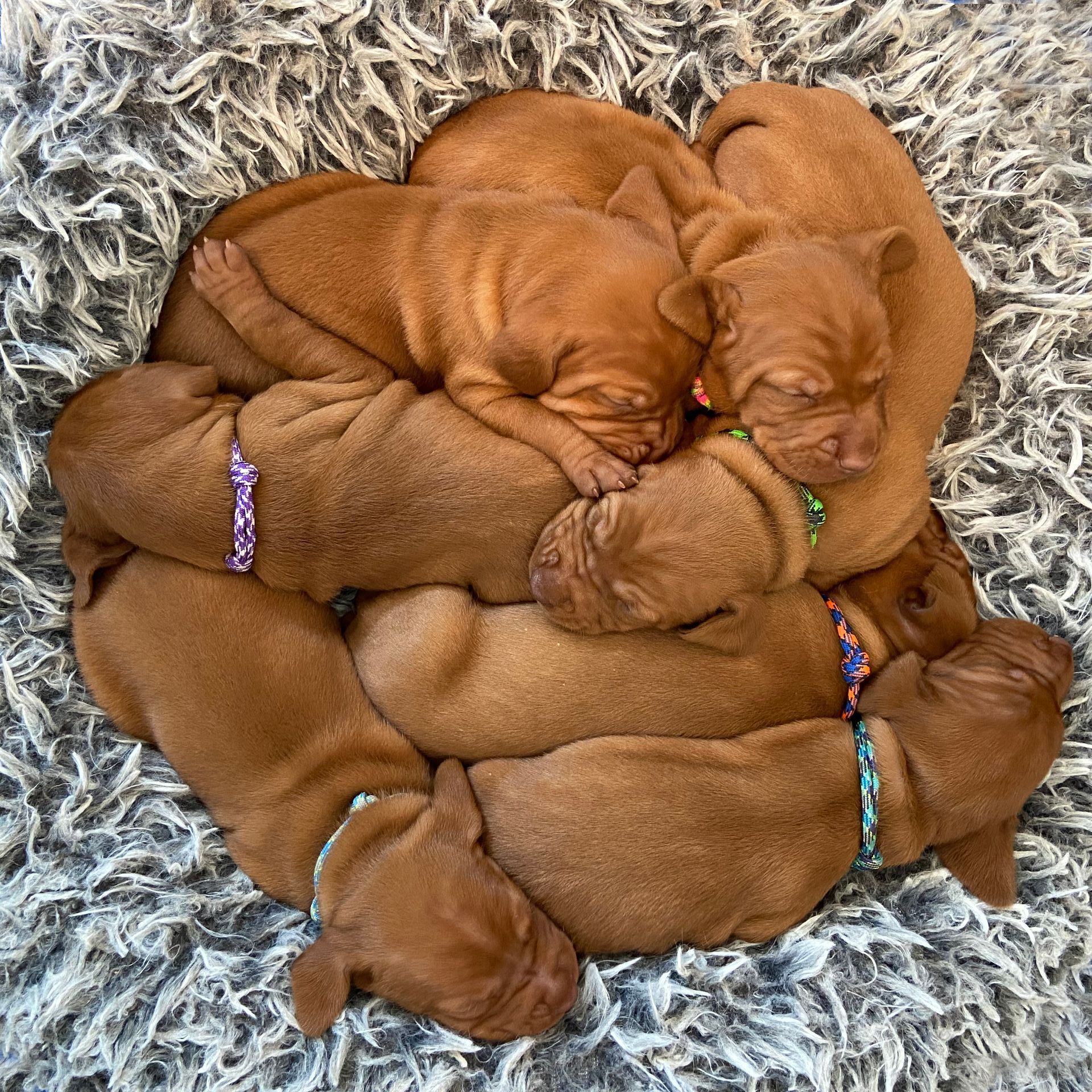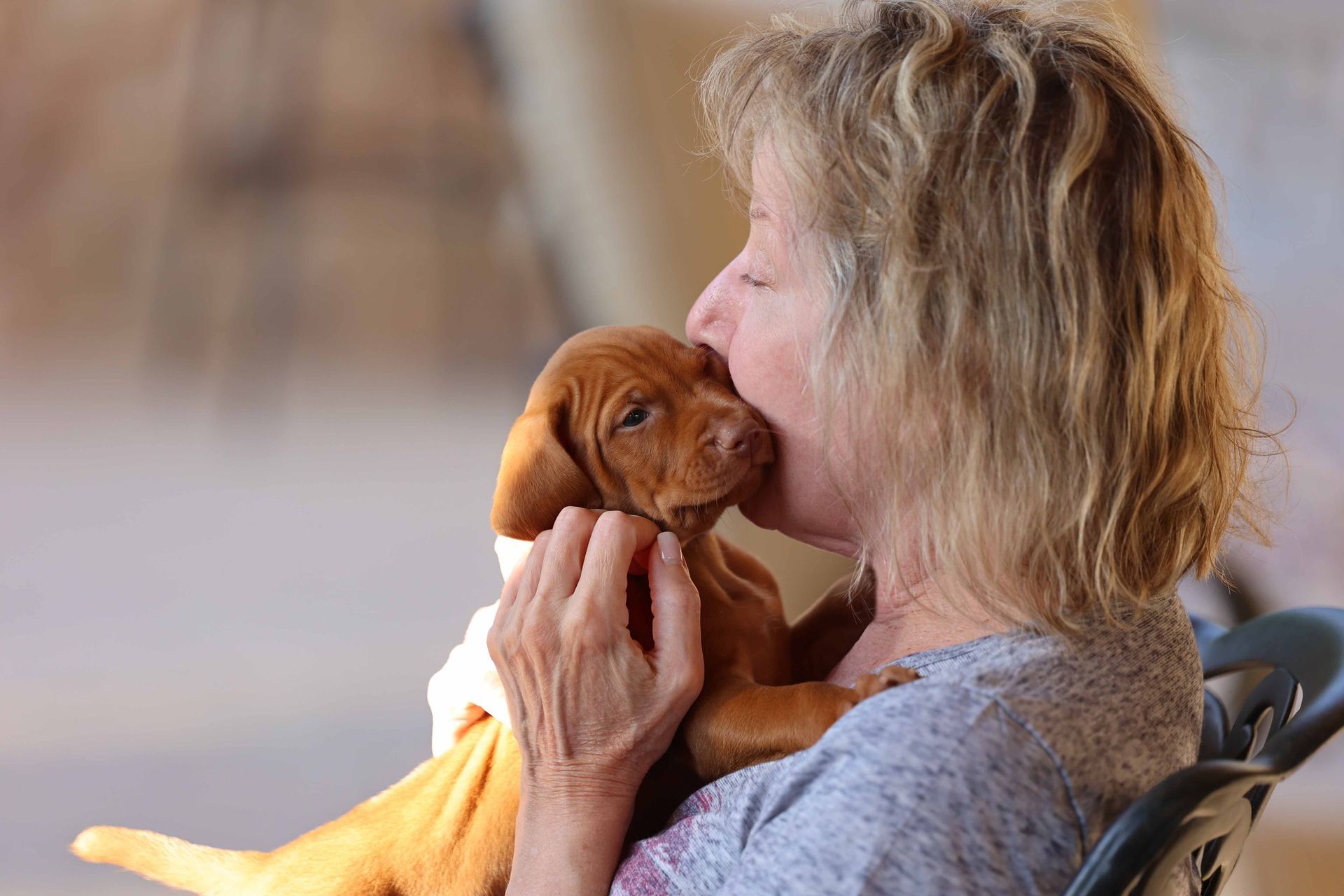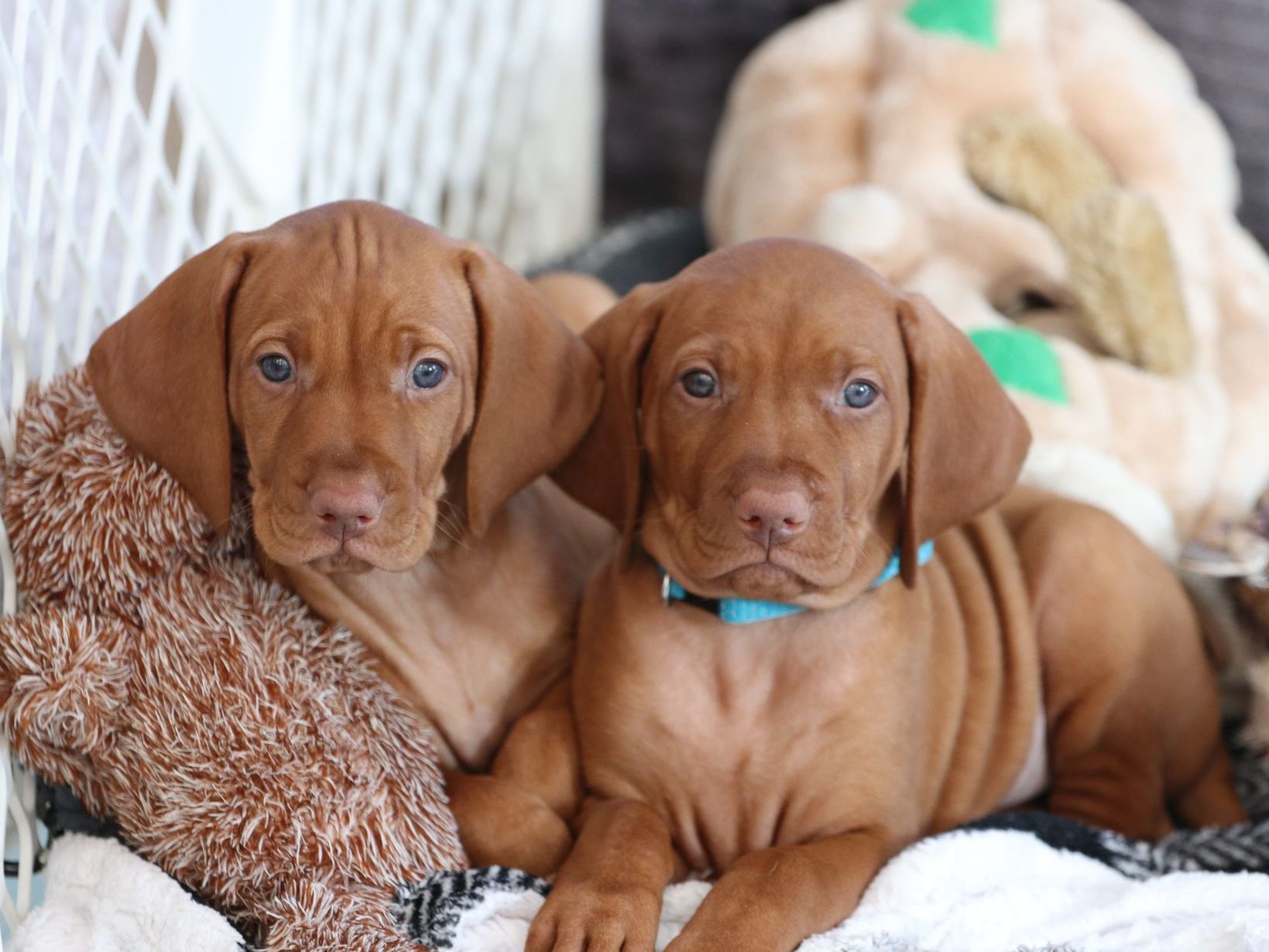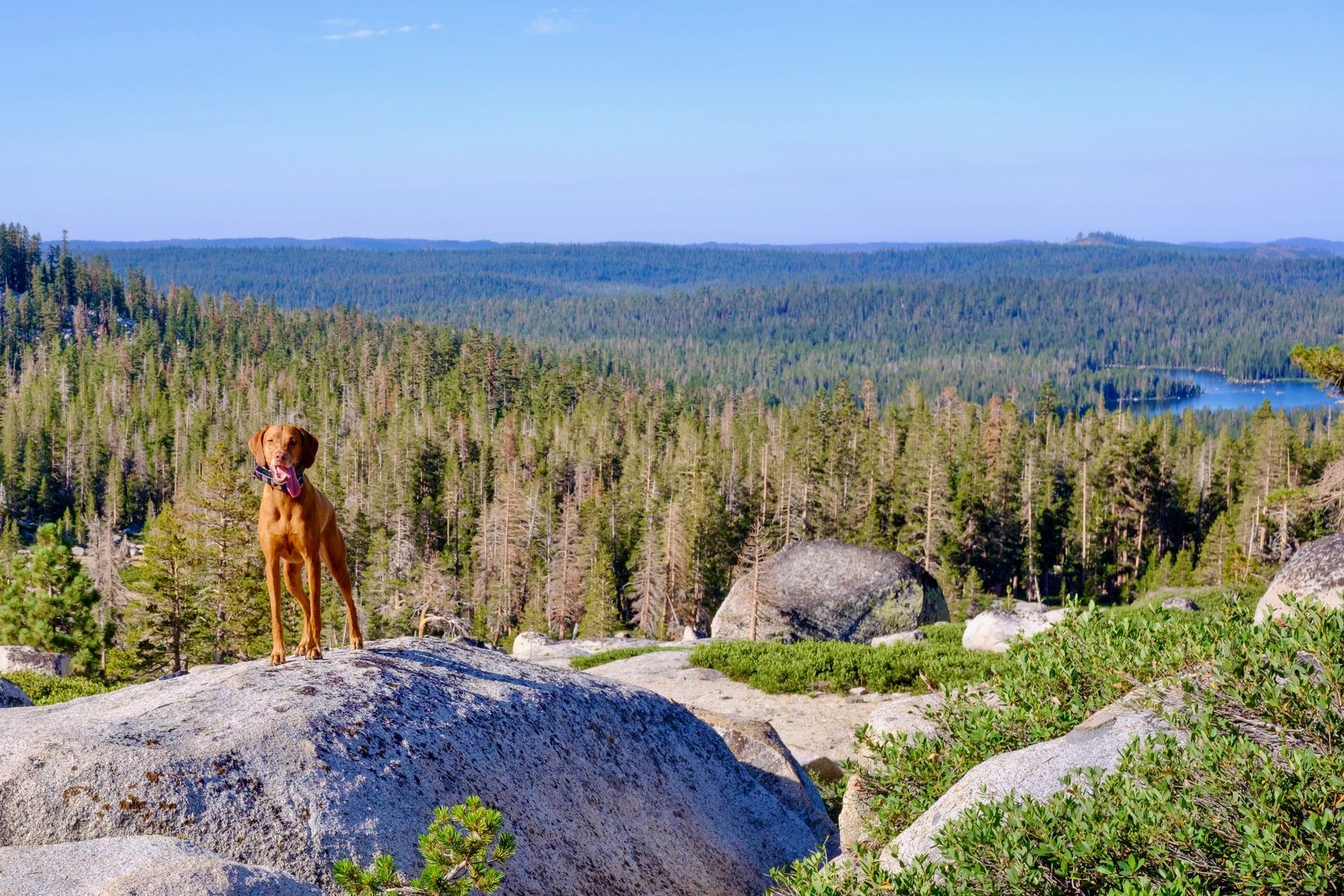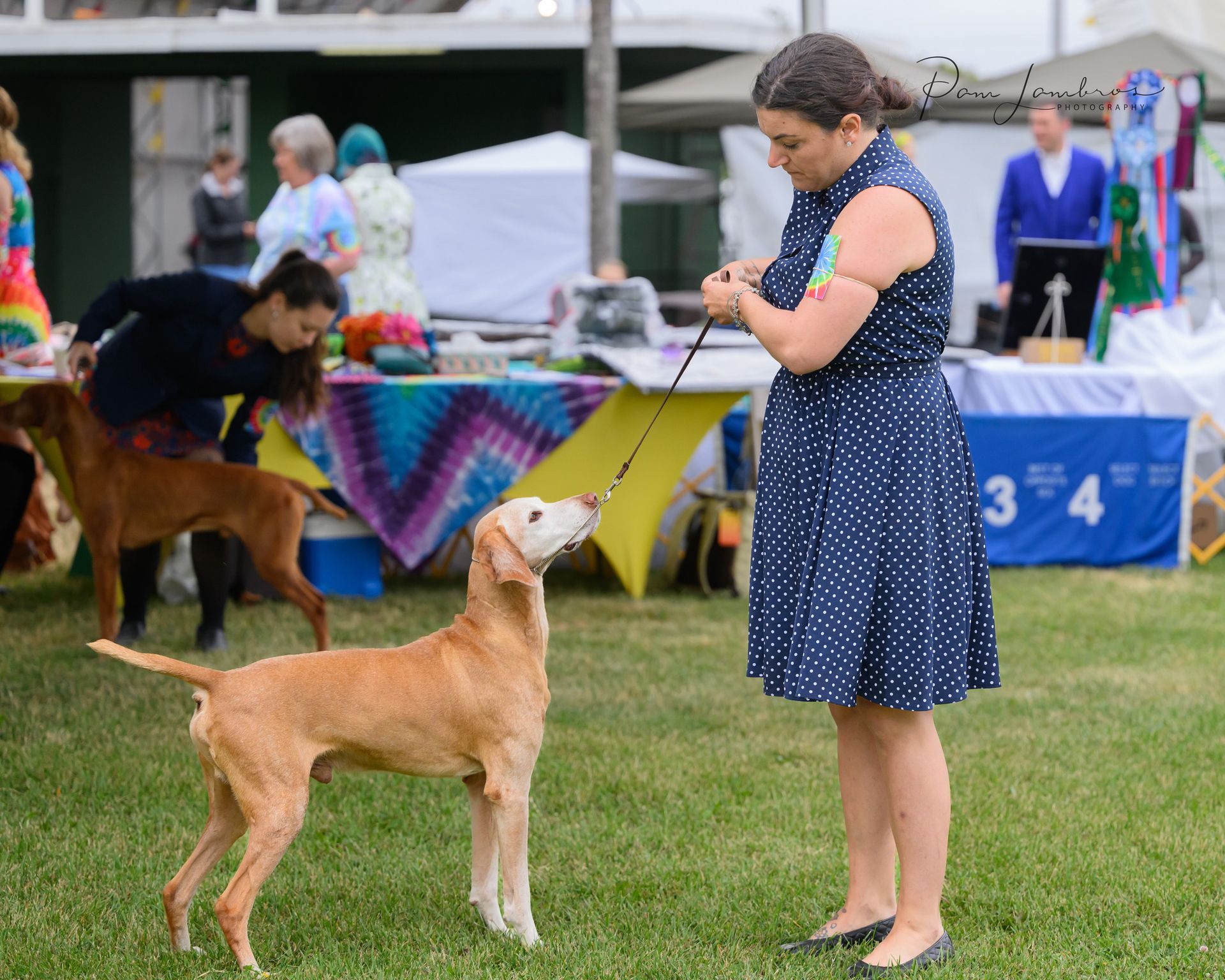Show your support by purchasing custom VCNC clothing & merchandise!
Click here to visit the VCNC store and order your gear!
Show your support by purchasing custom VCNC clothing & merchandise! Click here to visit the VCNC store and order your gear!
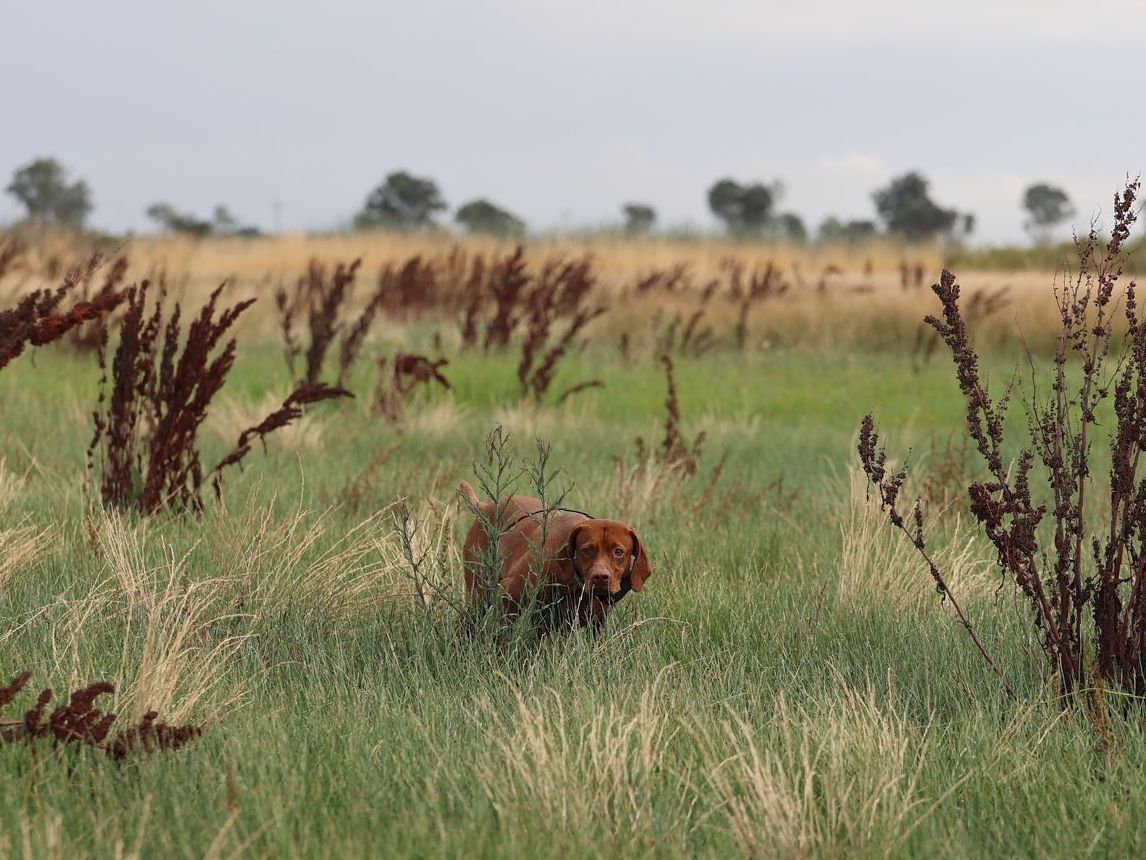
Ready for a Vizsla?
Owning a dog is a lifetime commitment and a major responsibility in time, energy and sometimes money. Vizslas often live until the age of 12 to 14 years. Before buying a Vizsla or any dog for that matter, please consider:
- Domesticated dogs cannot fend for themselves. Who will feed, walk, and pick up after your new dog when it's a puppy and when it grows older?
- Can your home and lifestyle accommodate a dog? If you work long hours, travel a lot on business, or have a very active social life and are out much of the time, then don't buy a dog. Dogs are social creatures and need human attention, affection and quality time with family members.
- Have you considered the energy requirements of a Vizsla and its effect on your personal lifestyle? While they require less than some of the other sporting breeds, adult Vizslas still need a minimum of 45 to 60 minutes of vigorous daily exercise. Puppies will require 2 hours of play and exercise a day. Since dogs generally don't run around a yard on their own, YOU will need to walk, run, jog or hike each day with your Vizsla. If you're not an active person, then buy a cat or a dog with lower energy and exercise requirements.
- Vizslas have a protective instinct but should not be aggressive. If you're looking for a guard dog, don't buy the Vizsla.
- Obedience lessons are essential for all dogs. Will you take time to socialize and train your new Vizsla?
- Have you budgeted for the cost of good quality, nutritious food, veterinarians' fees, and obedience lessons?
- Have you found a veterinarian and discussed your new dog's medical care requirements?
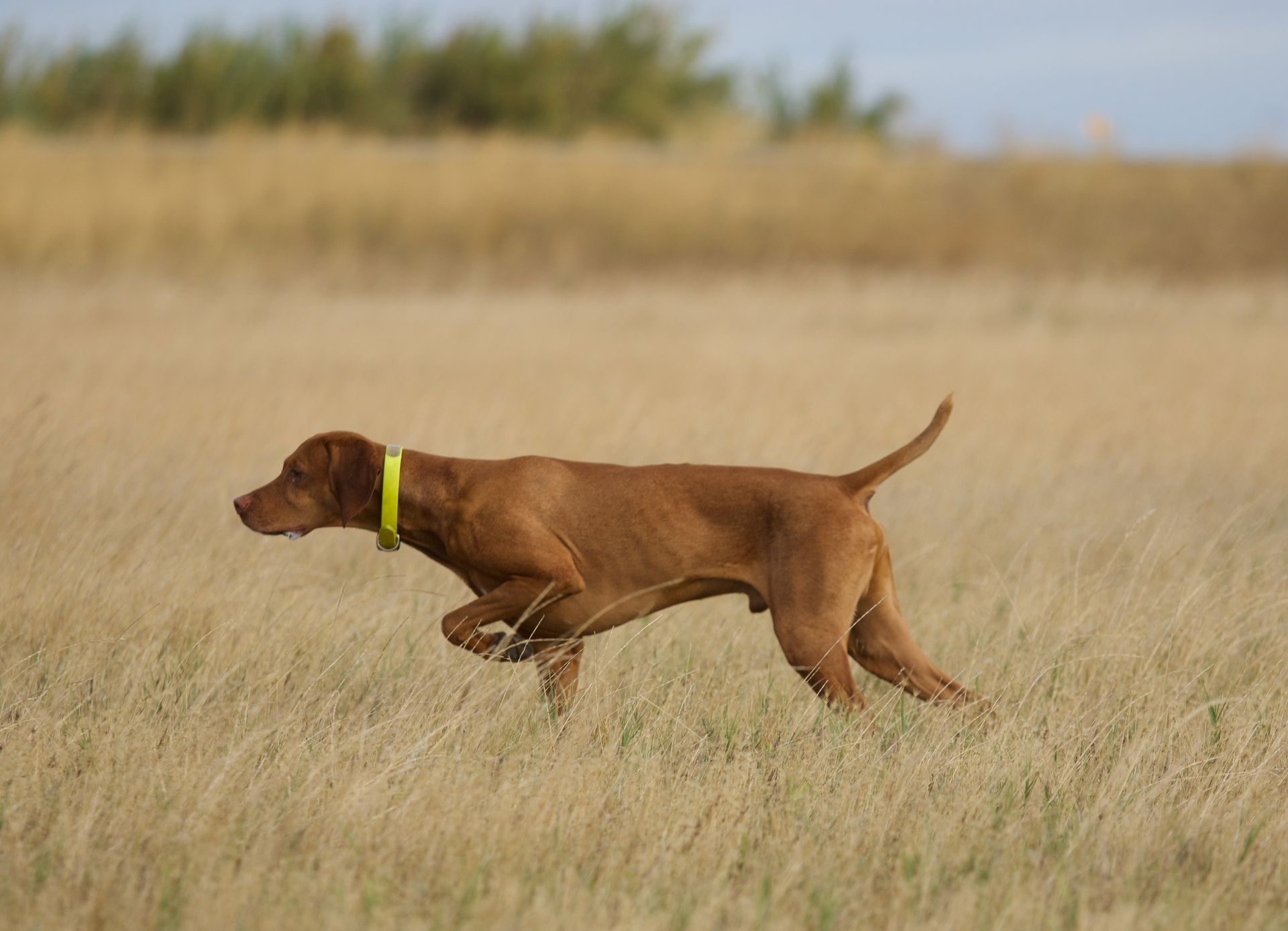
Is a Vizsla right for you?
It's already a given that Vizslas are a beautiful and elegant looking breed. But that's the wrong reason to add one to your family. Because they were originally bred to be a hunting companion (i.e. lots and lots of running in the field), they are a very high-energy breed. Vizslas are not your "walk around the neighborhood" kind of a dog. If you enjoy the great outdoors and exercising, a Vizsla might be the right match for you. But Vizslas shouldn't be matched to humans based on exercise levels alone. Vizslas are also very soft in temperament and love frequent cuddles with their human companions. There is an old Hungarian saying, "If you own a Vizsla, it lives on top of your head." This is a most accurate saying and why Vizslas are often described as "Velcro Vizslas". Be warned, if you bring a Vizsla into your home you may never go to the bathroom alone again!
Vizslas are very high-energy dogs and are extremely smart but generally slower to mature. This means you will most likely end up with a puppy until they're closer to 4 years old. But this also means that, while Vizslas should be biddable in temperament and therefore very trainable, they may not be the best candidates for those looking to compete at advanced levels with a very young dog. Like a fine wine, Vizslas get better with age!
A Vizsla properly raised with children will be their best friend. However, a family with small children is often not a good fit because the Vizsla requires significant time and energy. Families with young children should strongly consider their ability to commit to the requirements of this breed. Furthermore, parents should be careful to always manage the behavior of their children toward this sensitive breed that may not always tolerate improper behavior such as poking, prodding and hitting.
And yes, Vizslas shed just as much as other dogs. It's just harder to see because their hair is so short. They don't have an undercoat so that also gives the impression that they don't shed. If you like wearing black you might find yourself eliminating this color choice from your wardrobe as you grow tired of plucking little red hairs from the fabric.
Written by the RMVC
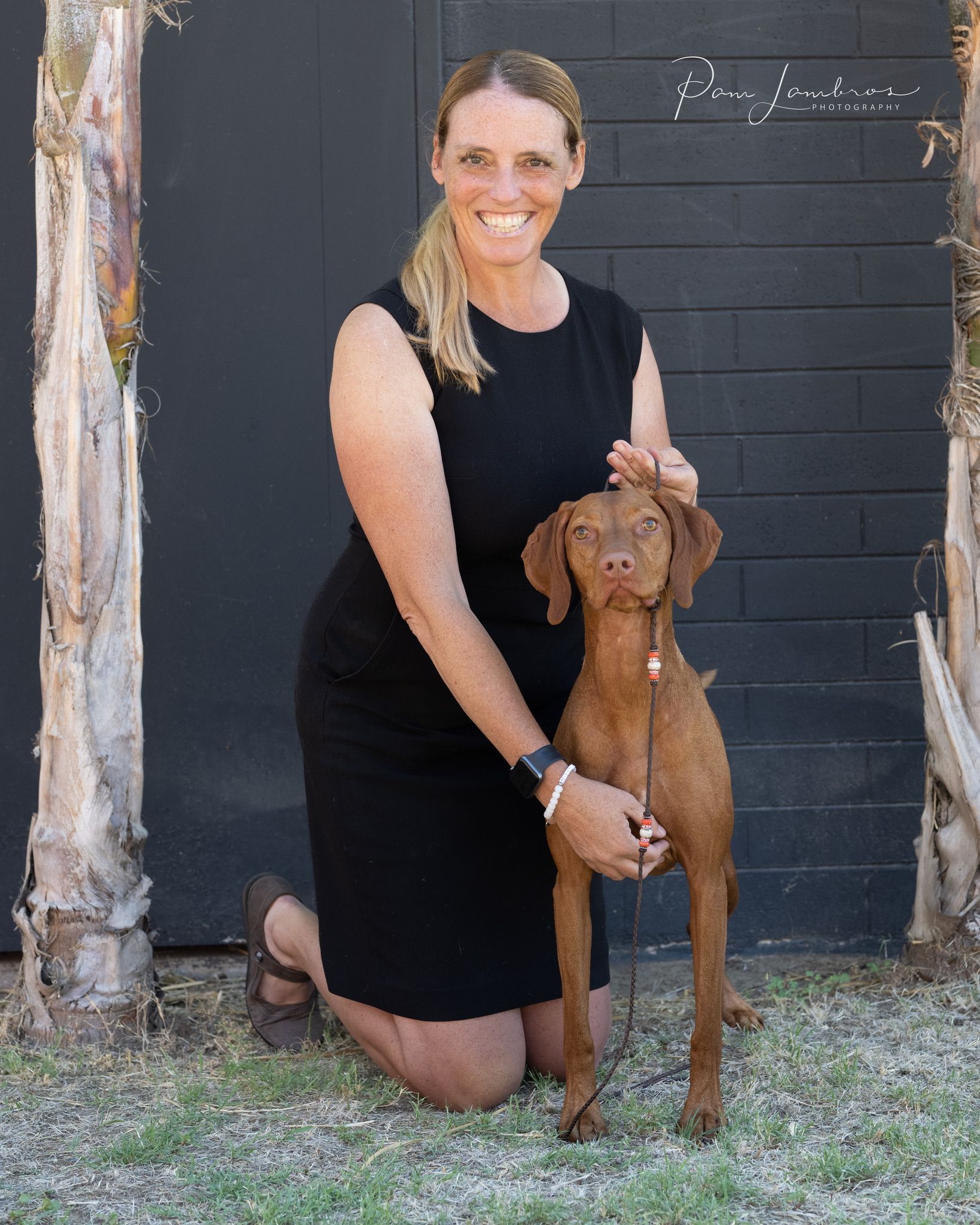
Vizsla Information
Things to Consider
Size and beauty seem to attract many people to the Vizsla. Their athletic form and motion are lovely characteristics. However, this is by no means a low-maintenance dog. Their need for exercise and companionship is above the norm. They intend to be complete family members and actually require close to the same time as a small child. Vizslas want to be next to their people all the time and often do not do well left alone for long days. They make poor backyard or kennel dogs. Vizslas are often referred to as Velcro dogs. Translated into plain language, that means you may never use the bathroom alone again! Left on their own, they become bored and often destructive as they find things to do to entertain themselves.
Exercise Needs
All dogs need exercise, but the Vizsla needs faithful daily physical exercise, as well as the mental stimulation of games with you. This is one of the reasons so many Vizsla owners participate in canine sports - for the fun and to keep the Vizsla exercised. The Vizsla can lie down on your lap and cuddle nicely, but not without some stimulating interaction during the day. They don't go out in the back yard and exercise themselves, even with another dog. They insist you join them in all activities.
Training Needs
Vizslas are intelligent and quick learners. That can be good and bad - depending on whether you or the dog is manipulating the training. Vizslas are a sensitive, soft dog that do not take punishment well and respond poorly to harsh training methods. They also mature quite slowly. A Vizsla is a puppy for at least 3 years. Realistic expectations and a lot of patience are requirements to live with a Vizsla.
Vizslas and Children
Vizslas can be good with children, but it is not a given. As hunting dogs, they often do not like to share items and particularly with toddlers. Many breeds are not fond of toddlers, and Vizslas are among them. The Vizsla does not have the pain tolerance or patience of the Labrador when it comes to being hugged, stepped on or cornered. Also, as hunting dogs, they are very oral and tend to mouth small children. They often knock them down and steal their toys and rarely appreciate a small child moving in on their space when resting. No small child should ever be left unsupervised with any dog, so there is a lot of management involved in having both.
Vizslas and other Critters
As a high drive hunting dog, many Vizslas do not do well with cats. Much also depends on the particular cat. Those that run or tease are usually chased down. It takes considerable work to reach compatibility with the two species. Other species are also typically considered prey to this breed. So, if you have a house full of various other critters, it would take an exceptional Vizsla to relax and blend in.
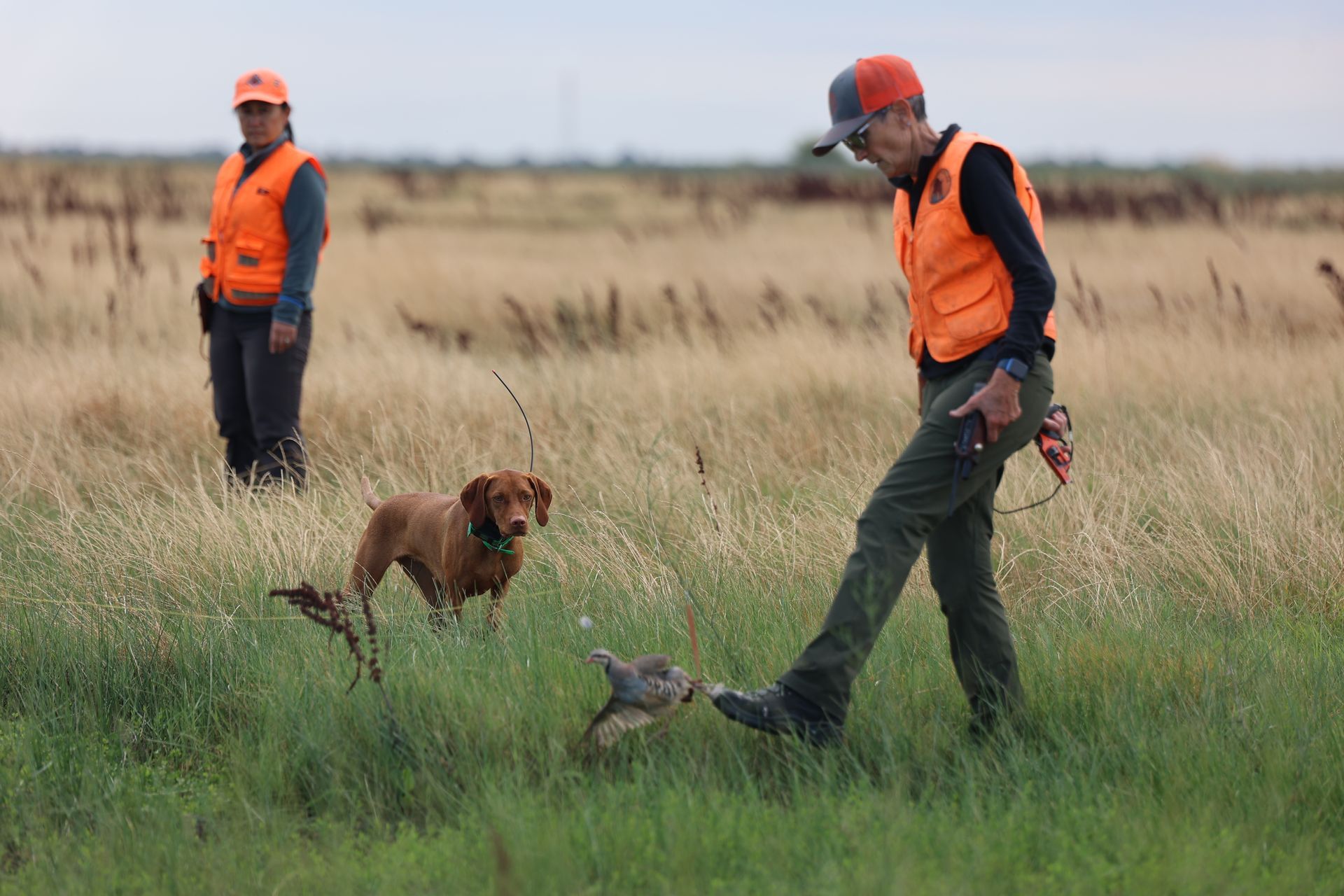
Choosing a Breeder
Responsible Vizsla breeders will:
- Test and ensure only Vizsla breeding stock which is cleared of hip dysplasia is used for mating. ASK TO SEE PROOF OF TESTING for both the dam (mother) and the sire (father) from the American Orthopedic Foundation for Animals (OFA), International Canine Genetics (PennHIP) in the USA, a Veterinary College in Canada, or the British or European equivalent. Ask if the breeder also has copies of test results for the puppy's grandparents and great-grandparents. The more dogs tested and cleared against hip dysplasia in the puppy's background, the better! NO TEST RESULTS, NO SALE!
- Ensure that their breeding stock is tested and cleared for other genetic diseases known to affect the Vizsla breed, eg., eye diseases: progressive retinal atrophy (PRA), cataracts, and entropion (dogs cleared of these diseases will have an up-to-date Canine Eye Registration Foundation (CERF) certificate; sebaceous adenitis; and thyroid and congenital heart disease (via OFA). Ask to see clearance certificates/documents.
- Know the breed standard and have a copy available on hand. The American Kennel Club has an official, written description of what the Vizsla's appearance, temperament and movement should be like. Stay clear of breeders who don't know the standard or who can't provide you with a copy.
- Be aware of and knowledgeable about the Vizsla's faults and major health problems. Every breed has some. Avoid the Vizsla breeder/seller who says there is none or doesn't know what they are!
- Know the pedigrees of their own dogs well. If they don't, it means they haven't put any thought into the breeding and are possibly out to make a buck and at your expense.
- Show you the dam and the sire (if he is on the premises) and provide copies of their registration certificates. If you're seeking a puppy and aren't permitted to see the dam, don't buy the pup, no matter how cute it is! Also ask to see where the puppies are whelped and raised. This should be a clean, heated, indoor facility. The state of the dog's living conditions will give you an idea of the quality of the breeder. DIRTY, UNHYGIENIC CONDITIONS, NO SALE!
- Not make the hard sell or be overly anxious to sell you a Vizsla. Reputable breeders will want to interview you or ask questions about your lifestyle and interests. They will also want you to know as much as possible about the breed characteristics to ensure a good match. AVOID THE SELLER WHO DOESN'T EXPRESS ANY INTEREST IN YOU, WHY YOU WANT A VIZSLA OR WHO KNOWS LITTLE ABOUT THE BREED OR THEIR DOGS.
- Put things in writing. Buying a puppy is a very risky business these days. To protect your rights, ask for a written agreement which, at a minimum, guarantees the dog is a purebred Vizsla, eligible for registration with the American Kennel Club, and will be registered by the breeder. Ideally the breeder should include representations that to the best of her/his knowledge, the dog is from sound, healthy stock and, if given proper affection, care and nutrition, should develop into a sound representation of the breed. A caring breeder will also outline in writing what s/he is prepared to do if you encounter problems or have to give up the dog. Most breeders give you 48 to 72 hours to have your own vet check your puppy and if necessary return or exchange the dog. NO WRITTEN AGREEMENT, NO SALE!
- Require you to spay or neuter your Vizsla or sell the pup on AKC limited registration. Both are good signs of a responsible breeder and dog owner. A non-breeding agreement can be lifted if your puppy grows up to be acceptable breeding quality.
- Provide you with written instructions on the care and feeding of your new Vizsla puppy, and ideally will send your puppy home with a small supply of food.
- Encourage you to tattoo or microchip your Vizsla after 4 to 6 months of age and register it with the AKC so that your dog can easily be identified and if lost or stolen, can be traced back to the breeder.
- Enter and compete for titles on their dogs in conformation, obedience, tracking and/or field. While a Championship titled dog doesn't necessarily mean it's worthy of breeding, Vizsla breeders who are active with their dogs in one or, ideally, more of these areas indicates some measure of desire to maintain or improve this breed's conformation, beauty, intelligence, versatility, and temperament.
- Be members of Vizsla Club of America and possibly one or more other Vizsla associations in the United States or Canada and the American Kennel Club.
- Provide follow-up support and assistance after you bring your dog home and will encourage you to call or write if you have questions or problems.
- Happily provide references from other puppy buyers, other dog owners, or breed club members. ASK FOR THEM! Talking to the breeder's previous buyers will tell you a lot about the individual with whom you'll be dealing if you purchase his/her dog.
VCNC Breeder Referral
The following members of the Vizsla Club Of Northern California (VCNC) have an up-to-date signed VCNC Breeder Code of Ethics document on file with the VCNC Breed Education Chair. The VCNC guidelines for inclusion on the list requires that Breeders breed only with the intention of adhearing to the Vizsla standard as recognized by the American Kennel Club (AKC). Further, breeders agree to produce dogs that exhibit soundness, stable temperament and maintain natural hunting ability. Our guidelines endorse the efforts of the Vizsla Club Of America (VCA) to eliminate hip dysplasia in dogs by breeding only those dogs that are over 2 years of age and have been X-rayed and OFA certified as free from hip dysplasia. Breeders also agree to breed only those dogs free of serious hereditary defects including epilepsy, progressive retinal atrophy, Von Willebrands, entropian and cranial atrophy.
| Breeder | Kennel Name | City | Phone | Areas of Participation | Memberships | |
|---|---|---|---|---|---|---|
| Steve & Michelle Artis | Chip's Vizslas | Concord, CA | qlhunter@sbcglobal.net | (925) 998-9579 | Field Trials, Hunt Tests, Show, Hunting | VCNC, VCA |
| Nancy Colwell & Robert Studer | DryCreek Vizslas | Sebastopol, CA | ncolwell@pacbell.net | (408) 921-1372 | Field Trials, Hunt Tests, Show, Hunting | VCNC, VCA, NVA |
| Nancy Guarascio | Jen's Penny Vizslas | Oakley, CA | nguarasc@comcast.net | (510) 220-3632 | Obedience, Hunt Tests, Show, Therapy Dog | VCNC, VCA, LCVC, Contra Costa KC |
| Lynn E. Martin | Kiralyi Vizslas | Citrus Heights, CA | kiralyireddogs@gmail.com | (916) 599-3107 | Obedience, Rally, Show, Hunting | VCNC, VCA, Lasa Apso Club of NC |
| Michelle Rochester | Red Diamond Vizslas www.reddiamondvizslas.com | Phoenix, AZ | michelle@reddiamondvizslas.com | (775) 745-0454 | Rally, Field Trials, Hunt Tests, Show, Hunting | VCNC, RSVC, VCA |
| Susan Sibley | HRQ Vizslas www.hrqvizslas.com | San Jose, CA | vizslaus@aol.com | Agility, Obedience, Rally, Field Trials, Hunt Tests, Show, Service Dog, Hunting, Therapy Dog | VCNC, LCVC, VCA | |
| Jessica Vetter | Menny Vizslas | Clayton, CA | jessvetter@hotmail.com | (916) 716-3009 | Agility, Scentwork, Rally, Field Trials, Hunt Tests, Show, Hunting, Obedience, Service Dog, Therapy Dog | VCNC, LCVC, VCA |
Inclusion on the VCA Breeder Directory does not constitute an endorsement by the Vizsla Club of Northern California, its Officers, Directors, Membership, Breeder Referral Chair or Webmaster. It is the responsibility of the puppy buyer to do research on individual breeders and stud dog owners. The VCNC assumes no responsibility for the accuracy of the information submitted and provides no endorsements for dogs, individuals or kennels. The VCNC Code of Ethics asks breeders to be responsible, fair and honest in their dealings with prospective buyers.
